Readymade Garments Manufacturer
Enrong Apparel offers a wide variety of fabrics for making custom-readymade garments that will make your fashion label stand out from the rest. Choose from our selection of cotton, linen, silk, chiffon and more to create a unique look for your clothing line.











Custom Product Series

Custom Readymade Garments Manufacturers Make Your Brand Stand Out
We Are a ONE-STOP Shop: This means that all processes are finished under one roof. You only have to concentrate on design and marketing, while we take care of the rest.
Our collection of fabric and patterns is truly unique, with a wide range of styles to suit all tastes. From timeless classics to the latest trends, we have something for everyone.
Our fabric collection makes it easy to find the perfect size for your body type. Our pieces are tailored to fit and flatter every silhouette, so you don't have to worry about settling for a standard size that may not be comfortable or flattering.
Low MOQ: Wholesalers can start with 50 pieces and mix designs, colors, and sizes as they wish, while customized brands usually have to start with 300 pieces per item per color.
How We Make It
Project Planning
We start with the first step: gathering any sample references and your tech pack or photographs. Your project manager will then assist you in verifying your materials and fitting details.Sourcing Materials
We work with local suppliers to acquire high-quality materials and assure that we stay below your specified price points. Lead times may be significantly shortened by choosing in-stock products.Pattern Making
Work with our expert pattern makers to achieve the features and fit of each style. Patterns are essentially the blueprint for all clothing items.Sample Making
Our skilled sample makers hand cut and sew your garments with detail and precision. By creating samples of your clothing, we're able to test the fit and functionality before mass production.Revisions
You'll have a fitting on the samples so we can know what alterations are needed for your next batch of samples. Thanks to the rich industry experience of our service team, we are confident to finish all revisions within only 1-2 rounds, while other traditional manufacturers may need 5+ rounds to achieve that.Productions
With your sample approved, we can begin pre-production. Placing your purchase order will initiate your first production run.Only True Feedback Counts
Why Choose Enrong
Looking for a reliable clothing manufacturing partner? Check out Enrong! Our team of experts focus on sample development, production, custom label printing and delivery – making sure your fashion needs are met every step of the way. We offer a variety of products to choose from. No matter what type of clothing design you want, our experienced team can make it happen. Contact us today and let us help you create the perfect fashion look!
At Enrong, we make it possible to turn your designs into displays. Our team of experienced professionals ensures the highest level of quality and workmanship. We strive to provide beautiful products that meet our customers’ expectations. With our expertise, you can ensure any project is completed with the utmost care and attention.
We have multiple garment manufacturers and can take on any quantity order, no matter the size. Our very short turnaround time means it will grow your business faster!
We ship worldwide via DHL, FedEx, UPS and more, so you don’t have to worry about anything at hand – just relax and our team will take care of everything.
Each piece is checked for stitching, measurements, and fabric accuracy, so you know that what we deliver is of the highest quality. With our professional Enrong service team, your fashion design will be brought to life and ready for delivery. Let us make sure that you get the perfect product you envisioned!
Start your own clothing line with 300 pieces per design and enjoy the advantages of custom-made clothes, more options for your customers, and savings in costs.

Buyer’s Guide
Readymade Garments Manufacturers: The Definitive Guide for Start-up Brands
Choosing a manufacturer is one of the most important decisions you will make when starting a clothing line right now. Finding one that’s a good fit for your specific needs is essential to ensuring the success of your business. Readymade garments manufacturers are businesses that design, produce, and market ready-to-wear clothing. They typically mass-produce garments using standard sizes and sell them through retailers or directly to consumers. In this blog post, we’ll provide an overview of readymade manufacturing, as well as the steps to start your clothing line. So, read on to learn more!
Table of Contents
1. What Is Readymade Garment?
A ready-made garment (RMG) is a piece of clothing that is manufactured in advance and sold to consumers in finished form. The term “ready-made” usually refers to clothing, such as shirts, shorts, pants, skirts, etc., that are mass-produced in factories and then sold in stores.
Readymade garments are often less expensive than custom-made garments since they require less labor to produce.
Here’s a video on how Readymade Garments are made, check this out.
2. The History of Readymade Garments
The readymade garments industry has a long and complex history, dating back to the industrial revolution in the 18th century. At that time, clothing was primarily made by hand, and it was very time-consuming. The invention of the sewing machine in 1846 changed that, and soon factories were mass-producing garments.
However, these factory-made clothes were still quite expensive, and only available to the wealthy. It wasn’t until the early 20th century that ready-to-wear garments became more affordable for the average person. The fashion industry soon began to take notice of this new market, and designer labels began to produce their own lines of ready-to-wear clothing.
Today, readymade garments are a mainstay of the fashion industry and are worn by people all over the world.
3. Types of Readymade Garments
There are many different types of readymade garments available on the market today. These garments are typically made from a variety of different fabrics, including cotton, linen, polyester, and nylon. They can be purchased in a wide range of colors, sizes, and styles to suit any taste.
Some of the most popular types of readymade garments include:
- T-shirts
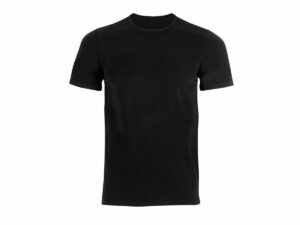
- Pants
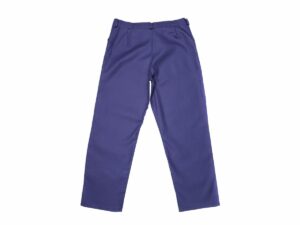
- Skirts
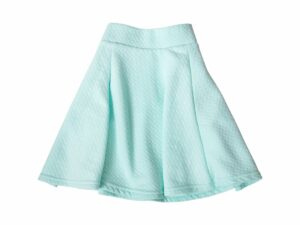
- Dresses
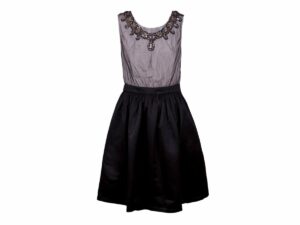
- Jackets
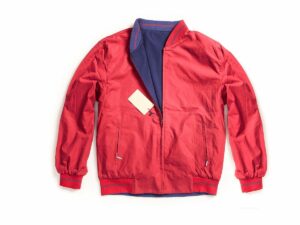
- Coats
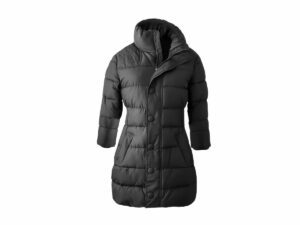
- Underwear
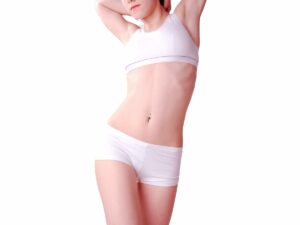
- Hats
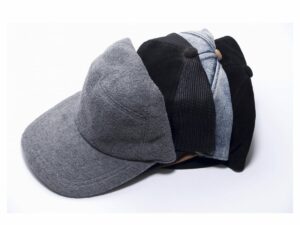
- Scarves
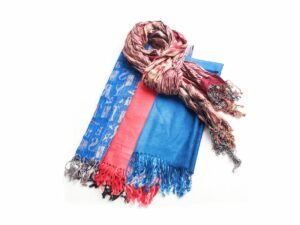
- Gloves
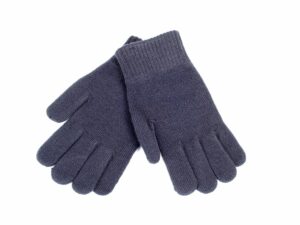
4. Advantages of Readymade Garments
The readymade garments industry has transformed the way we dress. By making clothes more affordable and easily available, it has democratized fashion and made it possible for people of all classes and backgrounds to express themselves through their clothing.
Lower Cost of Production
Readymade garments are mass-produced which means that they are generally more affordable than custom-made clothing. This makes them a great option for start-up brands who are working with a limited budget.
Wider Range of Sizes
Another advantage of readymade garments is that they are typically available in a wider range of sizes than custom-made clothing. This makes it easier to find the perfect fit for wide-reach customers.
Shorter Lead Times
Readymade garments can be produced and shipped much more quickly than custom-made clothing. This shorter lead time is ideal for start-up brands who need to get their product to market quickly.
Affordability of Finished Products
The lower cost of readymade garments also means that the finished product is more affordable for consumers. This makes readymade garments a great option for start-up brands who are looking to reach a wider market.
5. How Are Readymade Garments Made?
Ever wonder how readymade garments are made? The manufacturing process of readymade garments involves a few steps and stages, from fabric selection to final garment assembly. Let’s go over the main steps involved in readymade garment manufacturing:
Step#1 Selection of Raw Materials
The type of fabric to be used depends on the garment design and the intended use or purpose of the finished product. For example, the best fabric for sportswear would be different than the fabric used for formal wear.
Step#2 Pattern-Making
After the fabric has been selected, the next step is to create a pattern for the garment. A pattern is a template that will be used to cut out the fabric pieces that will eventually be sewn together to create the finished product.
Step#3 Cutting and Sewing
Once the appropriate fabric has been selected and the pattern has been created, the required amount is cut and sent to the next stage of production. The cut fabric pieces are then stitched together by skilled workers using sewing machines.
Step#4 Designing and Finishing
The final step in readymade garment manufacturing is to add any design details or finishings, such as buttons, zippers, or appliqués. During this stage, any designs or prints are also added to the blank clothing. After the readymade garments have gone through all of these steps, they are ready to be shipped off to stores or customers!
6. 6 Easy Steps to Start Your Own Clothing Line
So you’ve got a great fashion sense and an eye for style. You’ve thought about it, and you’re ready to take the plunge into the world of fashion design. But where do you start?
Designing your own clothing line can be a daunting task, but it doesn’t have to be. Here are six easy steps to get you started:
Step#1 Find Your Niche
What kind of clothes do you want to design? Who is your target market? Defining your niche will help you focus your efforts and connect with your target customers.
Step#2 Create a Business Plan
A business plan will help you articulate your goals, create a budget, and track your progress. This is an essential step for any new business, and it will help you stay organized and on track as you launch your clothing line.
Step#3 Source Materials and Manufacturers
Once you know what kind of clothes you want to design, you need to find the right materials and manufacturers to produce them.
Step#4 Develop a Marketing Strategy
How will you get the word out about your clothing line? You’ll need to develop a marketing strategy that includes social media, advertising, and public relations.
Step#5 Launch Your Website
Your website will be the center of your online presence, so make sure it’s professionally designed and easy to navigate. It’s the easiest and cheapest way to reach a global audience.
Step#6 Start Selling
Now it’s time to start selling your clothes! You can sell directly to consumers through your website or fashion boutique stores and department stores.
By following these steps, you’ll be well on your way to launching your very own successful clothing line!
7. Costs and Fees to Starting a Clothing Line
Before you can even start thinking about selling your clothes, you need to figure out how much it’s going to cost you to produce them. The cost of starting a clothing line can vary widely, depending on factors like the number of pieces you plan to produce, the materials you use, and whether you plan to manufacture your garments yourself or outsource production to a third-party factory.
Once you have a clear idea of your production costs, you’ll need to factor in the costs of marketing and promoting your brand, which can include everything from online advertising to hiring PR personnel. Of course, there are also general business expenses like office space rental and accounting fees.
To give you an estimate here’s a sample cost for starting a clothing line:
| Costs and Fees to Starting a Clothing Line | |
| Research and development | $500-$5,000 |
| Design and prototyping | $500-$5,000 |
| Fabric and trim | $1,000-$3,000 |
| Manufacturing | $2,000-$10,000 |
| Marketing and advertising | $500-$5,000 |
| General business expenses | $500-$5,000 |
As you can see, the cost of starting a clothing line can range from a few thousand dollars to tens of thousands of dollars. Of course, you can also choose to start small and scale up as your business grows. But if you’re prepared for the upfront investment and willing to put in the hard work, launching your own clothing line can be an incredibly rewarding experience.
8. How to Find a Clothing Readymade Garments Manufacturer
Before you can get your clothing line off the ground, you need to find a reputable clothing manufacturer. Here are a few places to check out:
Google search
Start with a simple Google search. You can use keywords like “readymade garments factory” or “readymade garments supplier” and your location. This should give you a good starting point.
Fashion Shows and Events
Another great way to find readymade garment manufacturers is by attending fashion shows and events. You can network with other designers and get leads on good factories.
Personal Recommendations
Finally, you can ask people you know for recommendations. If you have any friends or family in the fashion industry, they may be able to point you in the right direction.
Once you have a few leads, it’s time to start doing some research. Make sure to check out each manufacturer’s website and read online reviews. You want to make sure you’re working with a reputable company that will produce high-quality readymade garments.
9. Cost Factors You Should Keep in Mind
When it comes to t-shirt manufacturing, there are a few key cost factors you should keep in mind. Here are five of the most important:
Material Cost
The cost of the fabric used in t-shirts can vary significantly depending on the type and quality of the material. Higher quality materials will generally be more expensive, so it’s important to choose wisely. It typically costs more to produce t-shirts made from 100% cotton than it does to produce t-shirts made from a polyester blend.
Printing and Embellishments
The cost of t-shirt printing and embellishments will also vary depending on the complexity of the design. Simple t-shirts with one or two colors and no embellishments will be less expensive to produce than t-shirts with complex designs that require multiple colors and special effects. For bulk orders, this typically ranges from $0.50 to $10 per t-shirt.
Shipping and Handling
The cost of shipping and handling t-shirts will vary depending on the size of the order and the destination. For small orders, it may be possible to find bulk t shirt manufacturers who offer free shipping. For larger orders, it’s important to factor in the cost of shipping when calculating the total cost of t-shirt manufacturing.
Minimum Order Quantities
Most wholesale t shirt suppliers have minimum order requirements, meaning they won’t produce t-shirts unless you order a certain quantity. The minimum order quantity (MOQ) can range from a few dozen t-shirts to several thousand, so it’s important to find a t-shirt manufacturer that can meet your needs.
Setup Fees
Some t shirt manufacturers with custom tags charge setup fees for new orders, which can range from $50 to $200. This is typically a one-time fee that covers the cost of creating the screens or other printing plates needed to produce your t-shirts.
10. Conclusion
As a start-up fashion brand, working with readymade garment manufacturers can be a great way to outsource production, save money on costs, and ensure the quality of your garments.
At Enrong Apparel, we can help you with all aspects of clothing manufacturing, from design and development to production and shipping. We offer a wide range of customization options to ensure that your garments are exactly what you want. Contact us today to learn more about our services.






























































